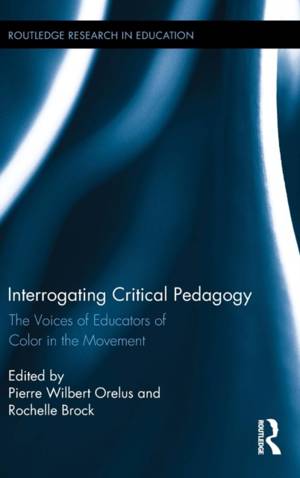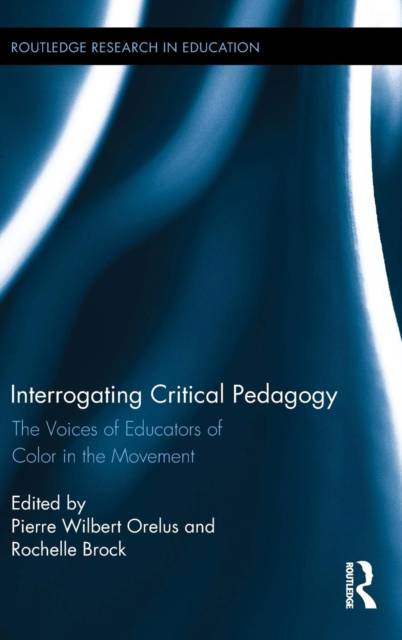
- Retrait gratuit dans votre magasin Club
- 7.000.000 titres dans notre catalogue
- Payer en toute sécurité
- Toujours un magasin près de chez vous
- Retrait gratuit dans votre magasin Club
- 7.000.0000 titres dans notre catalogue
- Payer en toute sécurité
- Toujours un magasin près de chez vous
Interrogating Critical Pedagogy
The Voices of Educators of Color in the Movement
Description
Educators, teacher practitioners, and social activists have successfully used critical pedagogy as a tool to help marginalized students develop awareness and seek alternative solutions to their poor educational and socioeconomic situations. However, this theory is often criticized as being mostly dominated by privileged white males, bringing issues of race and gender to the forefront. This volume provides insight on how critical pedagogy can be helpful to scholars and teachers alike in their analysis of racial, gender, linguistic and political problems. It features a wide range of respected scholars who examine the way and the degree to which critical pedagogy can be used to improve education for students of color, women and other marginalized groups.
Spécifications
Parties prenantes
- Editeur:
Contenu
- Nombre de pages :
- 306
- Langue:
- Anglais
- Collection :
Caractéristiques
- EAN:
- 9781138026209
- Date de parution :
- 19-11-14
- Format:
- Livre relié
- Format numérique:
- Genaaid
- Dimensions :
- 160 mm x 231 mm
- Poids :
- 598 g

Les avis
Nous publions uniquement les avis qui respectent les conditions requises. Consultez nos conditions pour les avis.





